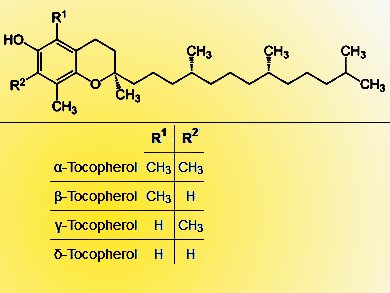Vitamin E is a fat-soluble antioxidant that exists in different forms such as γ-tocopherol and α-tocopherol. The first variant is contained in corn, canola, and soybean oils. The second one, instead, is abundant in olive and sunflower oils.
Joan Cook-Mills, Feinberg School of Medicine, Chicago, USA, and colleagues revealed that the two vitamin E forms exert opposite roles on the respiratory function. The researchers demonstrated that elevated blood concentrations of γ-tocopherol are associated to a 10–17 % reduction of the lung function and, as a consequence, to a lower breathing capacity. In contrast, high levels of α-tocopherol are linked to a better lung function.
As a consequence, a diet rich in olive oil might keep lungs healthy, while a diet rich in soy oil may be linked to respiratory problems.
- The vitamin E isoforms α-tocopherol and γ-tocopherol have opposite associations with spirometric parameters: the CARDIA study,
Michelle E Marchese, Rajesh Kumar, Laura A Colangelo, Pedro C Avila, David R Jacobs, Myron Gross, Akshay Sood, Kiang Liu, Joan M Cook-Mills,
Respiratory Res. 2014, 15.
DOI: 10.1186/1465-9921-15-31




